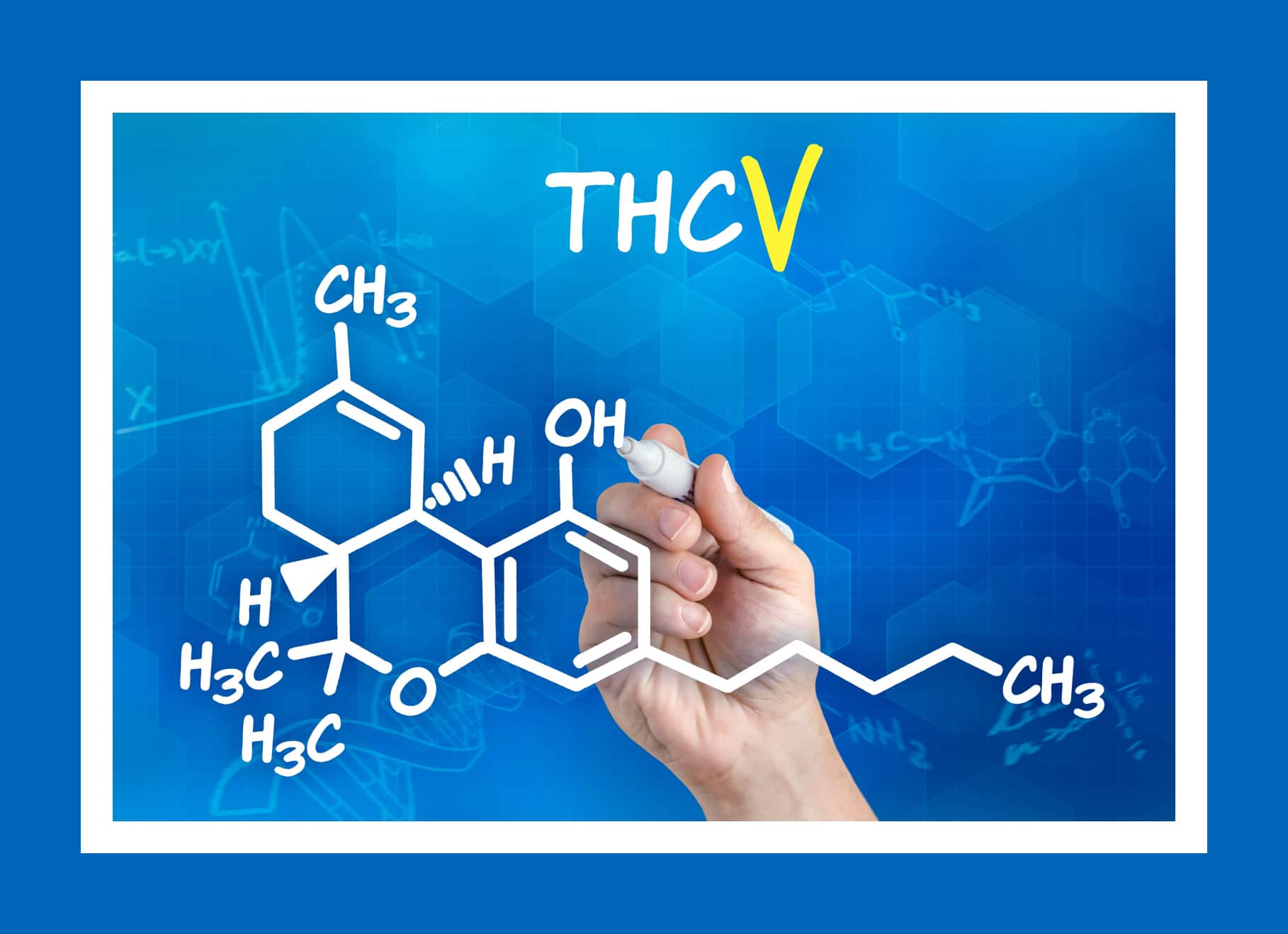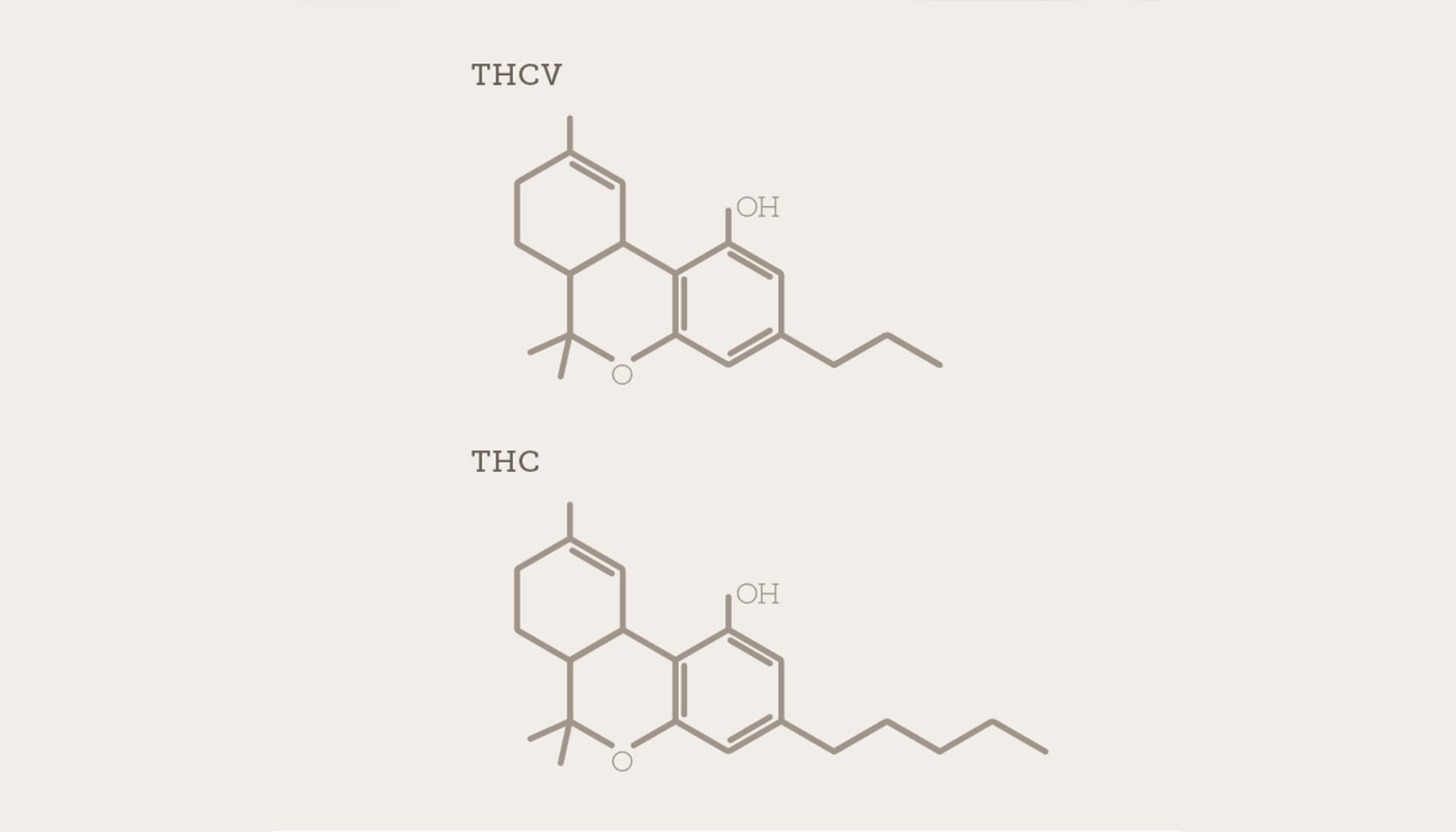Tetrahydrocannabivarin (THCV) is a cannabinoid compound discovered in marijuana and hemp plants. It's chemically similar to tetrahydrocannabinol (THC) however with some essential differences. Here's whatever you require to understand about THCV including the threats, benefits, distinctions, and similarities with other forms of THC and more. What Is THCV? THCV is a less typical cannabinoid discovered in some strains of marijuana, specifically African sativa.
 Tetrahydrocannabivarin (THCV) - Original FARM
Tetrahydrocannabivarin (THCV) - Original FARM
 Tetrahydrocannabivarin - Wikipedia
Tetrahydrocannabivarin - Wikipedia
 THCV vs THC: What Are the Differences? Articles Analytical Cannabis
THCV vs THC: What Are the Differences? Articles Analytical Cannabis
THCV has a 3-carbon side chain rather than THC's 5-carbon side chain. This difference is subtle, but it has a visible influence on the impact profile. THCV is rather psychedelic but only about and about. What Does THCV Seem like? THCV has a strong energy-boosting part to it, that makes it specifically popular amongst students and athletes.
In the United States, THCV guideline is nuanced. THCV is not a Schedule I Drug, but marijuana extracts are making it rather uncertain what the federal position is on THCV. The 2018 Farm Costs specifies that hemp plants and all derivatives of the plants are legal on a federal level, a lot of companies follow this law and still provide THCV to customers by only drawing out the substance from hemp plants.
If THCV is thought about a THC analog, it could be managed in the future by the exact same guidelines as THC under the Federal Analog Act. This act mentions that any compound that shares a similar molecular profile as a known prohibited compound it's included in the exact same drug Set up category.
What Are the Results of THCV? Advocates of THCV report that it produces an extreme burst of energy and makes them feel blissful without the mental cloudiness triggered by THC. The results are incredibly moderate compared to THC. The impacts are almost specifically cognitive yet somehow have very little effect on headspace.
2. THCV & Appetite Some THCV users declare that it curbs their hunger. This is a common effect of other focus-enhancing compounds. It's as though THCV eliminates the distraction of other physical procedures (like appetite) in order to preserve resources and attention to cognitive tasks rather. How Does THCV Work? Cannabinoids produce biological impacts in the body by engaging with endocannabinoid receptors.
CB1 receptors are located in the nervous system and interact with neurotransmitters in the brain to produce mind-altering effects. Interaction with CB1 websites is what gives some cannabinoids like THC their psychoactivity. THCV is a bit tricky to comprehend since it's primarily a CB1 villain, suggesting it has the opposite impact as THC.
While scientists are still seeking to comprehend this process, it appears THCV is able to obstruct the results of CB1 in low dosages and stimulate them in high doses. CB2 receptors are discovered mainly in the immune system. THCV is a partial agonist of CB2, but the results of this partial activity aren't popular, and it seemingly has no noticeable effect on THCV users' experience.
As pointed out in the previous area, THCV is a CB1 antagonist in low doses which is the exact opposite result of delta 8 and delta 9 THC. This might mean that THCV counteracts a few of the psychoactive effects of THC. This effect could describe why people who use THCV feel so clear-headed specifically compared to the notorious "fogginess" caused by delta 9 THC.